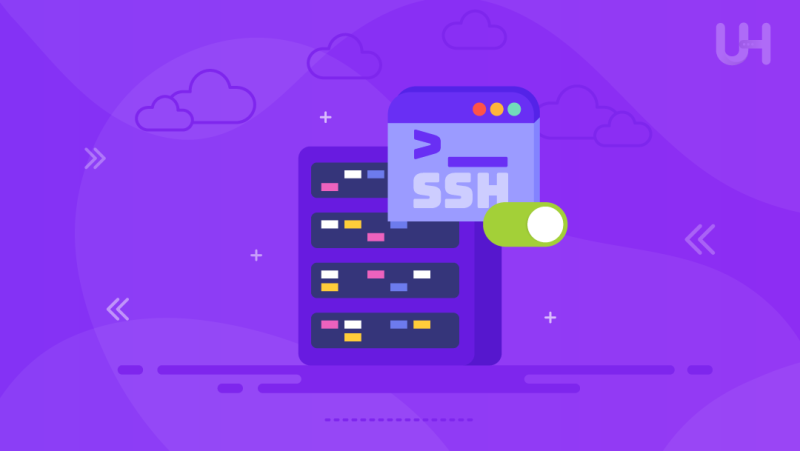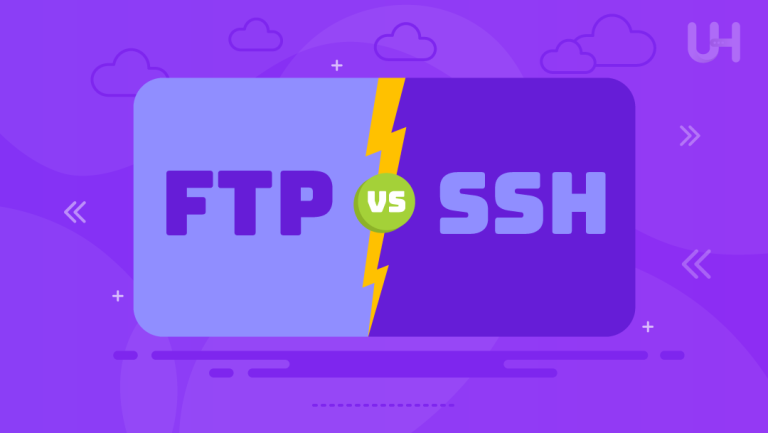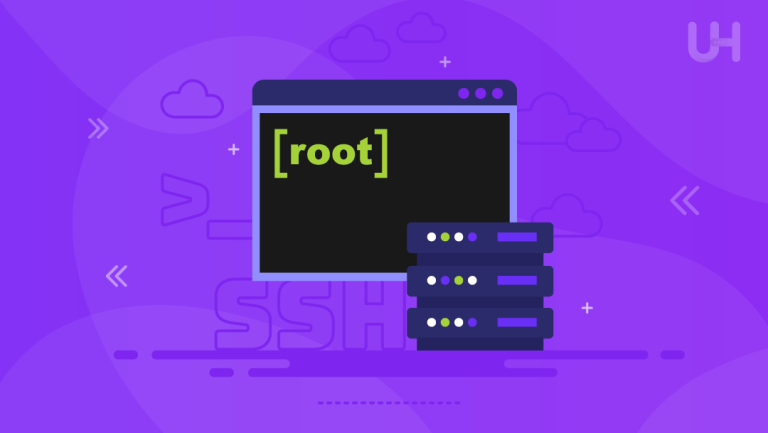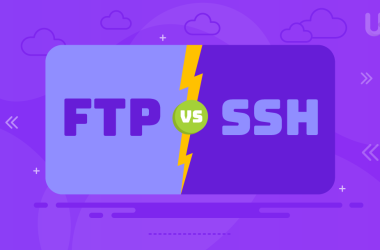In the modern digital era, securing your online presence is key with the ever-increasing risks of cyber threats. VPS hosting provides a perfect balance between affordability and the control one needs; it offers resources independently dedicated to improving performance and security. Since businesses regularly transmit sensitive information, it is very important that such transfers are kept as secure as possible to prevent unauthorized access and theft. In such a case, SSH-enabled VPS hosting is one of the perfect opt-ins for businesses that prioritize data security.
SSH is a cryptographic protocol in which the data gets encrypted while in transfer to protect against interception or manipulation. In VPS hosting, you will be able to securely manage your server with SSH-enabled file transfers and execution of commands so that your business operations remain secure from any form of cyber threat.
What is SSH?
SSH stands for Secure Shell, a cryptographic network protocol used for securely accessing and managing remote servers over an insecure network. It is designed to ensure that all data transferred from the client to the server and vice versa is encrypted against eventual eavesdropping or tampering by unauthorized parties.
SSH was invented in 1995 by a Finnish researcher, Tatu Ylönen, as an immediate response to an integral password-sniffing attack on his university network. This first version of SSH gained wide acceptance very fast as a secure alternative to outdated protocols that transmit data, including passwords, in plain text, like Telnet and FTP. Since its inception, SSH has grown into a widely-used standard that enables secure communication over the Internet in IT environments, it provides a secure way to perform system administration and file transfers.
Working of SSH
Basically, SSH works by establishing an encrypted connection between the client and the server. The whole process consists of a few basic steps:
- Encryption: With the establishment of an SSH connection, there is an exchange of cryptographic keys, which become shared between the client and the server. These are then used to encrypt all data across the connection so that if it is intercepted, it won’t be readable without the correct decryption key.
- Authentication: SSH provides authentication in the very same way as proving the identity of the user. In it, there are a couple of the most frequent ones: password-based and based on public key authentication. In public key authentication, the user’s private key is kept securely on the device it is using while its corresponding public key is placed on the server. It then utilizes the public key to verify that a user has the correct private key; lacking this, it denies access without the need for even asking for a password.
- Data Integrity: SSH also provides integrity in the data transfers. It makes use of cryptographic hash functions to come up with a unique fingerprint of the data. In such a case, where the data gets intercepted and altered during transmission, the fingerprint changes, which may raise an alarm both at the client and server about a possible tampering.
Benefits of SSH-Enabled VPS Hosting
SSH-enabled VPS hosting offers a range of benefits that significantly enhance the security and reliability of your server management and data transfers.
Enhanced Security
Among other advantages of SSH-enabled VPS hosting is robust security. SSH ensures that all data passing between the client and server is encrypted against unauthorized parties. It makes man-in-the-middle attacks where otherwise a malicious actor would be able to intercept and alter in transit data impossible because the information shall be encrypted. In addition, SSH opens up access to your server securely; you can manage your Virtual private server well by knowing that nobody else will be let in.
Authentication Methods
SSH supports several forms of authentication providing different security levels. The most common methods are password authentication and public key authentication. Password authentication asks users for the password to access the server, but that password may be vulnerable in the case of a weak or compromised password. On the other hand, public key authentication rests on utilizing a pair of cryptographic keys: a private key securely kept on the user’s device and its corresponding public key stored on the server.
This is considered more secure since passwords will not have to be sent across the network, consequently reducing the chances of unauthorized access. Comparatively, public key authentication is better in terms of security and should be recommended for protecting critical systems.
Data Integrity
SSH not only encrypts data but also ensures that the data remains intact during transfer. It uses cryptographic functions to create a unique fingerprint of the data. Hence, it allows both the client and server to verify that the data has not been tampered with. If any modification occurs during transmission, SSH detects it immediately, alerting users to potential security breaches. This mechanism provides peace of mind that your data will arrive at its destination exactly as it was sent.
Tunneling Capabilities
SSH also offers powerful tunneling capabilities, commonly referred to as SSH tunneling or port forwarding. This feature allows you to create secure communication channels over otherwise unsecured networks. By forwarding specific ports through an encrypted SSH connection, you can securely transmit data between different systems or access remote services as if they were local. This is particularly useful for securely accessing internal business applications, managing remote servers, or transferring files between different environments. SSH tunneling provides a flexible and secure way to manage various network activities without exposing sensitive information.
Take Control of Your Data Security Today!
Ready to enhance your data security with SSH-enabled VPS hosting? Discover how SSH can protect your sensitive information and streamline your server management. Learn more and get started with Ultahost’s SSH VPS Hosting.
How SSH-Enabled VPS Hosting Facilitates Secure Data Transfers
SSH-enabled VPS hosting is a powerful tool for ensuring data security and remote server management. By leveraging the capabilities of SSH, you can protect sensitive information and maintain control over your server with enhanced security protocols.
Setting Up SSH on VPS
Enabling SSH on your affordable VPS is a straightforward process that begins with installing the SSH server software if it’s not already included in your VPS setup. Once installed, you can enable SSH by starting the SSH service and configuring it to run automatically on startup. To maximize security, it’s important to modify the default SSH settings.
Secure File Transfers
SSH provides secure file transfer options through protocols like SCP (Secure Copy Protocol) and SFTP (SSH File Transfer Protocol). SCP allows you to securely transfer files between your local machine and your VPS by utilizing SSH’s encryption capabilities. It’s ideal for quick, straightforward file transfers. SFTP, on the other hand, offers more robust functionality, combining the security of SSH with the features of FTP (File Transfer Protocol), such as file management commands (e.g., list, delete, rename). While SCP is faster for single file transfers, SFTP is better suited for managing multiple files or directories. Both protocols ensure that your files are transferred securely without the risk of interception or data loss.
Remote Server Management
SSH enables you to manage your VPS remotely with a high level of security. By establishing an encrypted connection, you can execute commands, update software, and configure your server from any location. This secure remote management is particularly beneficial for businesses with distributed teams. It is also beneficial for those needing to maintain servers across different geographical locations. SSH allows for continuous server monitoring and management without physical access. It ensures that your operations run smoothly and securely, even when you’re not on-site.
Best Practices for Using SSH-Enabled VPS Hosting
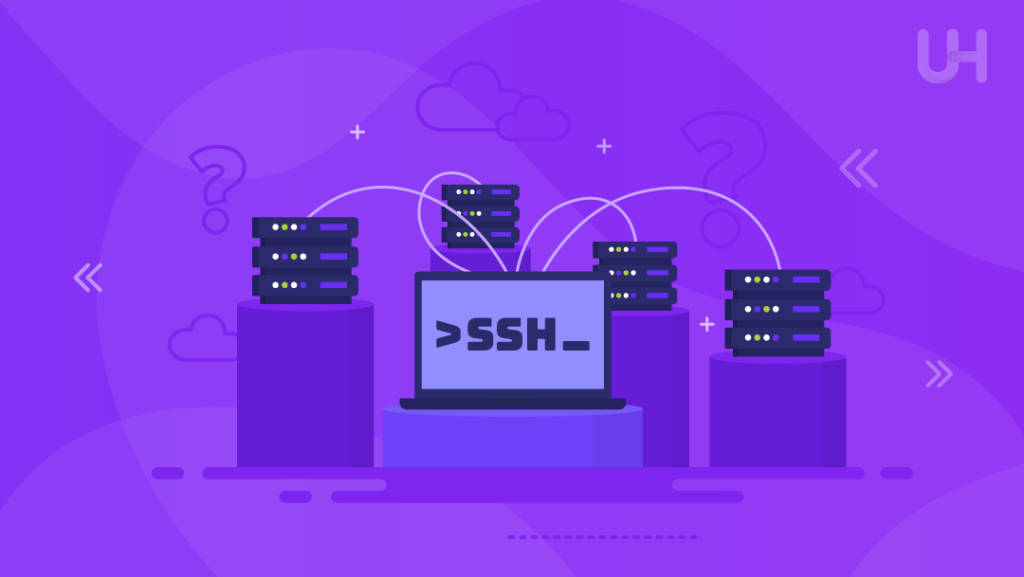
To maximize the security benefits of SSH-enabled VPS hosting, it’s essential to follow best practices and take security measures that help safeguard your server and data from potential threats. Here are some key strategies to implement:
Regularly Update SSH Software
Keeping your SSH software up to date is crucial for maintaining security. Updates often include patches for vulnerabilities that could be exploited by attackers. By regularly updating your SSH software, you ensure that your server is protected against the latest threats. To update SSH on your VPS, you can typically use your package manager to check for and install updates.
Strong Authentication Practices
Strong authentication is a critical component of SSH security. Start by creating strong, unique passwords for accessing your VPS. A good password should be long, include a mix of upper and lower case letters, numbers, and special characters. It is to avoid common phrases or easily guessable information. However, for even better security, implement public key authentication. This method uses a pair of cryptographic keys—one private and one public. The private key remains on your device, while the public key is stored on the server. This setup not only eliminates the need for passwords but also significantly reduces the risk of unknown access.
Monitoring and Logging
Regular monitoring and logging of SSH access attempts are vital for detecting and responding to potential security incidents. By keeping detailed logs of all SSH connections, you can track who accessed your server and when. These logs can help you identify unusual or unknown access attempts. It includes repeated failed login attempts or connections from unexpected IP addresses. Monitoring tools can be used to alert you in real-time to suspicious activities, allowing you to take immediate action. Regularly reviewing these logs helps maintain the security of your VPS by ensuring that any irregularities are promptly addressed.
Conclusion
In conclusion, SSH-enabled VPS hosting is a powerful and secure solution for businesses that require remote server management. By leveraging robust encryption and authentication, you can protect your sensitive information from cyber threats. It ensures that your server remains secure. Implementing best practices—such as using strong authentication methods and configuring firewalls —further strengthens your VPS security posture. By prioritizing these measures, you can confidently manage your online operations, knowing that your data and systems are well-protected.
For additional protection against potential threats, consider exploring Ultahost’s DDoS protected VPS solutions. Learn more about how these advanced features can further enhance your security by visiting Ultahost’s DDoS-Protected VPS. Elevate your server’s security and stay ahead of potential risks today!
FAQ
What is SSH-enabled VPS hosting?
SSH-enabled VPS hosting uses Secure Shell (SSH) to securely manage servers and transfer data by encrypting all communications.
Why is SSH important for secure data transfers?
SSH encrypts data during transfer, protecting it from interception and ensuring data integrity.
How can I secure SSH access?
Use strong passwords or public key authentication, restrict access to specific IPs, and use a non-standard port.
What are the benefits of remote server management with SSH?
SSH allows you to securely manage your VPS from anywhere, ideal for businesses with distributed teams.
How do I update SSH software?
Use your server’s package manager to check for and install updates regularly to maintain security.
What should I monitor in SSH logs?
Look for unusual login attempts or activity from unknown IP addresses to detect potential threats.
Can SSH tunneling improve security?
Yes, SSH tunneling creates secure channels for data transmission over untrusted networks.





